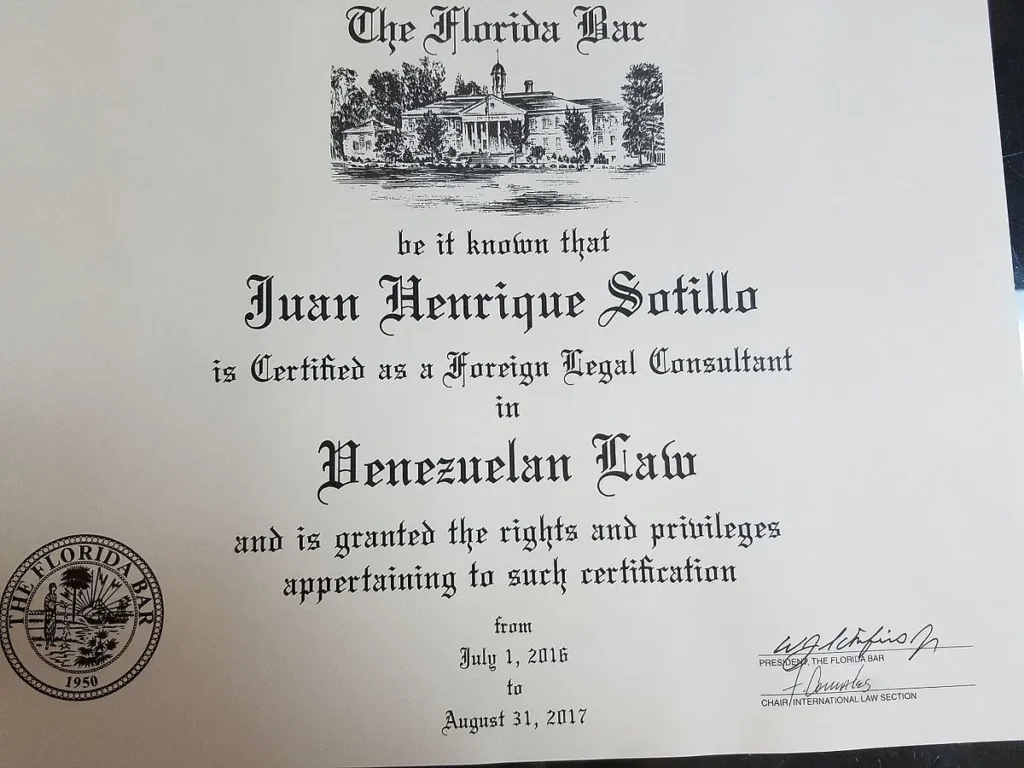How to Become a Finance Lawyer?

To become a finance lawyer, you should complete a bachelor’s degree, then pursue a Juris Doctor (JD) degree, and finally pass the bar exam. Additionally, gaining relevant work experience and networking in the field can also be beneficial for a career in finance law.
The field of finance law offers an exciting and challenging career path for individuals with a passion for law and finance. Finance lawyers play a crucial role in advising clients on complex financial matters, such as corporate transactions, securities offerings, and regulatory compliance.
Table of Contents
Whether you aspire to work for a prestigious law firm, a financial institution, or in-house at a corporation, a career in finance law requires a solid educational foundation, practical experience, and a thorough understanding of financial markets and regulations. We will outline the steps to becoming a finance lawyer, providing you with a roadmap to navigate your way towards this rewarding profession.

Education
To become a successful finance lawyer, obtaining the right education is crucial. This involves pursuing an undergraduate degree and then attending law school. Additionally, specializing in finance law can provide you with the necessary expertise to excel in this field.
Undergraduate Degree
Before you can enter law school, you must first earn an undergraduate degree. While there is no specific major requirement for aspiring finance lawyers, pursuing a degree in finance, accounting, economics, or business can be advantageous. These disciplines offer a solid foundation in the financial principles that are vital to understanding the complexities of finance law.
During your undergraduate studies, consider taking courses that emphasize critical thinking, research skills, and effective communication. These skills will be invaluable as you advance in your legal career.
Law School
After completing your undergraduate degree, the next step towards becoming a finance lawyer is attending law school. Law schools typically require applicants to take the Law School Admission Test (LSAT) and submit their transcripts and letters of recommendation.
Law school typically lasts for three years and focuses on building a strong legal foundation. Courses such as contracts, property law, constitutional law, and civil procedure provide a comprehensive understanding of the legal system. However, it is essential to take elective courses that specialize in finance and business law to gain expertise in the specific area of finance law.
Specializing In Finance Law
While obtaining a law degree provides a broad knowledge of the legal field, specializing in finance law can give you a competitive edge. Specialization allows you to focus on financial regulations, corporate finance, securities law, mergers and acquisitions, and other finance-related topics.
To specialize in finance law, consider enrolling in elective courses that cover these subjects. Additionally, seek opportunities to gain practical experience through internships or legal clinics that focus on finance law. This hands-on experience will enhance your understanding of the field and allow you to apply your knowledge to real-world scenarios.
Furthermore, staying updated with current financial trends, regulatory changes, and case studies will help you maintain your expertise in finance law. Continuously building your knowledge base will demonstrate your commitment to the field and increase your chances of success as a finance lawyer.

Gaining Experience
Gaining experience is a crucial step towards becoming a successful finance lawyer. It helps you develop the necessary skills, knowledge, and networks to thrive in this competitive field. In this article, we will explore three key avenues to gain valuable experience in finance law: internships, clerkships, and networking.
Internships
Internships are a fantastic way to gain hands-on experience in finance law. They provide opportunities to work closely with industry professionals, observe legal proceedings, and contribute to real cases. Internships also give you a chance to hone your research, writing, and negotiation skills.
To secure an internship, it’s essential to start early and be proactive. Research law firms, financial institutions, and government agencies that specialize in finance law. Reach out to their human resources departments or connect with lawyers in the field to express your interest. Update your resume and craft a compelling cover letter that highlights your passion for finance law and any relevant coursework or extracurricular activities you have participated in.
During your internship, make the most of your time by asking questions, attending meetings and court hearings, and seeking feedback from your supervisors. Building strong relationships with mentors and colleagues can lead to invaluable recommendations, job offers, or referrals.
Clerkship
A clerkship is another excellent opportunity to gain practical experience and insights into finance law. Clerkships typically involve working with judges in courts or tribunals, assisting in legal research, drafting legal documents, and observing courtroom proceedings.
Similar to internships, clerkships help you develop critical legal skills while providing exposure to different areas of finance law. They can enhance your understanding of the legal system and how it functions within the financial industry.
Securing a clerkship often involves a competitive application process. Research the courts or tribunals where you would like to work and gather information about their selection criteria and application deadlines. Tailor your application materials to highlight relevant coursework, achievements, and any prior legal experience you may have gained through internships or part-time work. Submit your application well in advance and ensure it is error-free and professionally written.
Networking
Networking is an invaluable strategy for gaining experience in finance law. Building relationships with professionals in the field can open doors to internships, clerkships, mentorship opportunities, and even job offers.
Attend industry conferences, seminars, and workshops related to finance law. Engage in conversations with speakers and fellow attendees, showing genuine interest in their experiences and insights. Be active on professional social media platforms like LinkedIn, joining finance law groups and participating in discussions. Connect with lawyers and other legal professionals in the field, and consider asking for informational interviews to learn more about their career path and gain advice.
Don’t underestimate the power of personal connections either. Reach out to family, friends, and university alumni who work in finance law or related fields. They may be able to introduce you to valuable contacts or provide guidance.
Remember, gaining experience is an ongoing process. Continuously seek new opportunities, stay updated on industry trends, and strive to expand your knowledge and skills. By taking advantage of internships, clerkships, and networking opportunities, you can build a solid foundation for a successful career in finance law.
Developing Skills
Developing skills is crucial for those aspiring to become finance lawyers. By gaining knowledge in finance law, honing negotiation and research abilities, and staying up-to-date with industry regulations, individuals can pave the way for a successful career in the field.
With perseverance and dedication, the path to becoming a finance lawyer can be achieved.
Developing Skills:
Analyzing complex financial issues and effectively presenting legal arguments require a strong set of skills. To become a successful finance lawyer, it is crucial to develop and hone key competencies such as analytical, communication, and negotiation skills.
Analytical Skills:
Analytical skills are the foundation of a finance lawyer’s success. Strong attention to detail and the ability to analyze vast amounts of financial data are essential. By examining legal intricacies and financial statements, finance lawyers can provide thorough legal advice that aligns with their clients’ best interests. These skills enable attorneys to identify potential risks, anticipate outcomes, and devise strategic solutions to complex financial problems. Finance lawyers must also demonstrate proficiency in legal research, utilizing databases, statutes, and case law to build compelling arguments.
Communication Skills:
Communication is a critical aspect of a finance lawyer’s daily responsibilities. They must effectively communicate legal concepts to clients, judges, and fellow colleagues. The ability to express complex financial ideas in a clear and concise manner is fundamental. Finance lawyers must possess excellent writing skills to draft persuasive legal documents and contracts. Additionally, strong verbal communication skills are essential for presenting arguments, negotiating deals, and collaborating with clients and other professionals. Maintaining open lines of communication fosters trust and ensures the successful representation of clients.
Negotiation Skills:
Negotiation skills are paramount for finance lawyers who often engage in complex financial transactions. These lawyers must negotiate on behalf of their clients to secure favorable terms and agreements. These skills involve carefully analyzing the opposing party’s position, assessing risks, and strategizing negotiation tactics. Finance lawyers must possess the ability to find common ground while advocating for their client’s interests. Effective negotiation skills contribute to the successful resolution of financial disputes and the creation of beneficial legal arrangements.
Developing and refining these skills requires practice, dedication, and continuous learning. Aspiring finance lawyers should seek opportunities to work on real-world cases, participate in moot court competitions, and pursue internships or clerkships in esteemed law firms specializing in finance. Offering a comprehensive set of skills, these characteristics are crucial for becoming a successful finance lawyer.

Licensing And Certification
When pursuing a career as a finance lawyer, obtaining the necessary licenses and certifications is essential. This ensures that you have the knowledge and skills needed to practice law in the financial industry. There are two main components to consider: passing the bar exam and obtaining finance law certifications.
Passing The Bar Exam
The first step to becoming a finance lawyer is to pass the bar exam. This exam is administered by the state in which you plan to practice law. It assesses your understanding of legal principles and your ability to apply them in real-world scenarios.
In order to prepare for the bar exam, it is crucial to create a study plan and dedicate ample time to review all relevant materials. Utilize resources such as practice exams, study guides, and online courses to supplement your learning. It’s also important to stay organized and track your progress to ensure you are fully prepared on the day of the exam.
On the day of the exam, be sure to arrive early and bring all necessary materials, such as identification and approved calculators. Pace yourself during the exam and read each question carefully to avoid any mistakes. Remember, confidence and a clear understanding of the subject matter are key factors in achieving a passing score.
Obtaining Finance Law Certification
While passing the bar exam allows you to practice law, obtaining specific finance law certifications can set you apart in the field. These certifications demonstrate your expertise and dedication to the financial industry, enhancing your career prospects.
One widely recognized certification for finance lawyers is the Certified Financial Law Specialist (CFLS) designation. This certification requires meeting specific criteria, including a certain number of years of experience in finance law, completion of continuing education courses, and passing a comprehensive exam.
Another notable certification is the Certified Financial Planner (CFP) credential. While not exclusive to finance lawyers, this certification is highly regarded in the industry. It signifies your knowledge and competence in financial planning, which can be advantageous when dealing with complex financial cases.
When considering which certifications to pursue, research the requirements and benefits of each one. Select certifications that align with your career goals and allow you to specialize in the areas that interest you most.
Career Path
Are you interested in a career as a finance lawyer? This rewarding and challenging profession requires a diverse skill set, including a strong understanding of finance and a keen attention to detail. In this blog post, we will explore the career path of a finance lawyer, including the different stages and opportunities available to those in the field.
Starting At A Law Firm
One common starting point for aspiring finance lawyers is to join a law firm. Law firms provide a solid foundation where you can gain valuable experience and develop your expertise in finance law. As a junior associate, you will work closely with senior lawyers, assisting them in research, drafting legal documents, and representing clients. This initial stage of your career allows you to learn the intricacies of finance law and build a network of professionals in the industry.
At a law firm, you will have the opportunity to work on a wide range of finance-related matters, such as mergers and acquisitions, securities law, and regulatory compliance. This exposure will help you develop a holistic understanding of the finance industry and its legal implications.
Working In-house
An alternative career path for finance lawyers is to work in-house for a financial institution or a corporation. In this role, you will become a part of the company’s legal team, providing legal advice and guidance on finance-related matters. Working in-house allows you to gain an in-depth understanding of the specific business and industry you are serving. You will be involved in negotiating and drafting contracts, managing regulatory compliance, and advising on financial transactions.
Working in-house offers a different perspective compared to a law firm. You will have the opportunity to work closely with business executives, finance professionals, and other stakeholders within the company. This collaboration enables you to gain a comprehensive understanding of the company’s goals and objectives, incorporating legal considerations into their strategic decisions.
Becoming A Partner
Advancing in your finance law career can lead to the coveted position of becoming a partner in a law firm. Becoming a partner requires a combination of legal expertise, business development skills, and a track record of success. Partners are typically responsible for managing client relationships, supervising junior lawyers, and leading strategic initiatives within the firm.
As a partner, you will become a trusted advisor to your clients, providing them with innovative legal solutions and guiding them through complex financial transactions. You will have the opportunity to specialize in a particular area of finance law and develop a strong reputation within the industry.
Becoming a partner is not easy, and it requires dedication, perseverance, and continuous learning. However, the rewards can be significant, both in terms of financial compensation and professional recognition.
In conclusion, the career path of a finance lawyer offers a variety of opportunities, including starting at a law firm, working in-house, and eventually becoming a partner. Each stage provides unique experiences and challenges, allowing you to grow professionally and contribute to the legal field of finance.
Conclusion
Becoming a finance lawyer requires dedication, hard work, and a passion for the law. By pursuing a strong educational foundation, gaining practical experience through internships and networking opportunities, and staying updated on industry trends and regulations, you can pave your way to a successful career in finance law.
Remember, the key to success lies in constant growth and a commitment to lifelong learning. So, take the plunge and embark on this rewarding path, and let your passion for finance law propel you to new heights.
Introducing Jonah Plum, a legal luminary whose journey through the corridors of justice has been intertwined with the eloquence of the written word. Born and raised in the vibrant city of Seattle, Washington, Jonah's early fascination with language and debate laid the foundation for a remarkable career in law.
Jonah's scholarly odyssey began at Harvard Law School, where they immersed themselves in the study of jurisprudence, honing their analytical prowess and legal acumen. Armed with a law degree, they entered the legal arena, navigating courtrooms and boardrooms with a fervor for justice. Yet, it was the realization of the transformative power of the written word that led Jonah to pivot from legal briefs to the world of blogging.
A digital advocate in the truest sense, Jonah recognized the need for demystifying legal concepts and making them accessible to a broader audience. This blog, a virtual repository of legal insights, transcends geographical boundaries, connecting with a global readership hungry for clarity amidst legal complexities.
Beyond the black letter of the law, Jonah delves into the human stories that underscore the legal landscape. Their writing goes beyond legal analysis, weaving narratives that humanize the law, shedding light on its impact on individuals and society.






